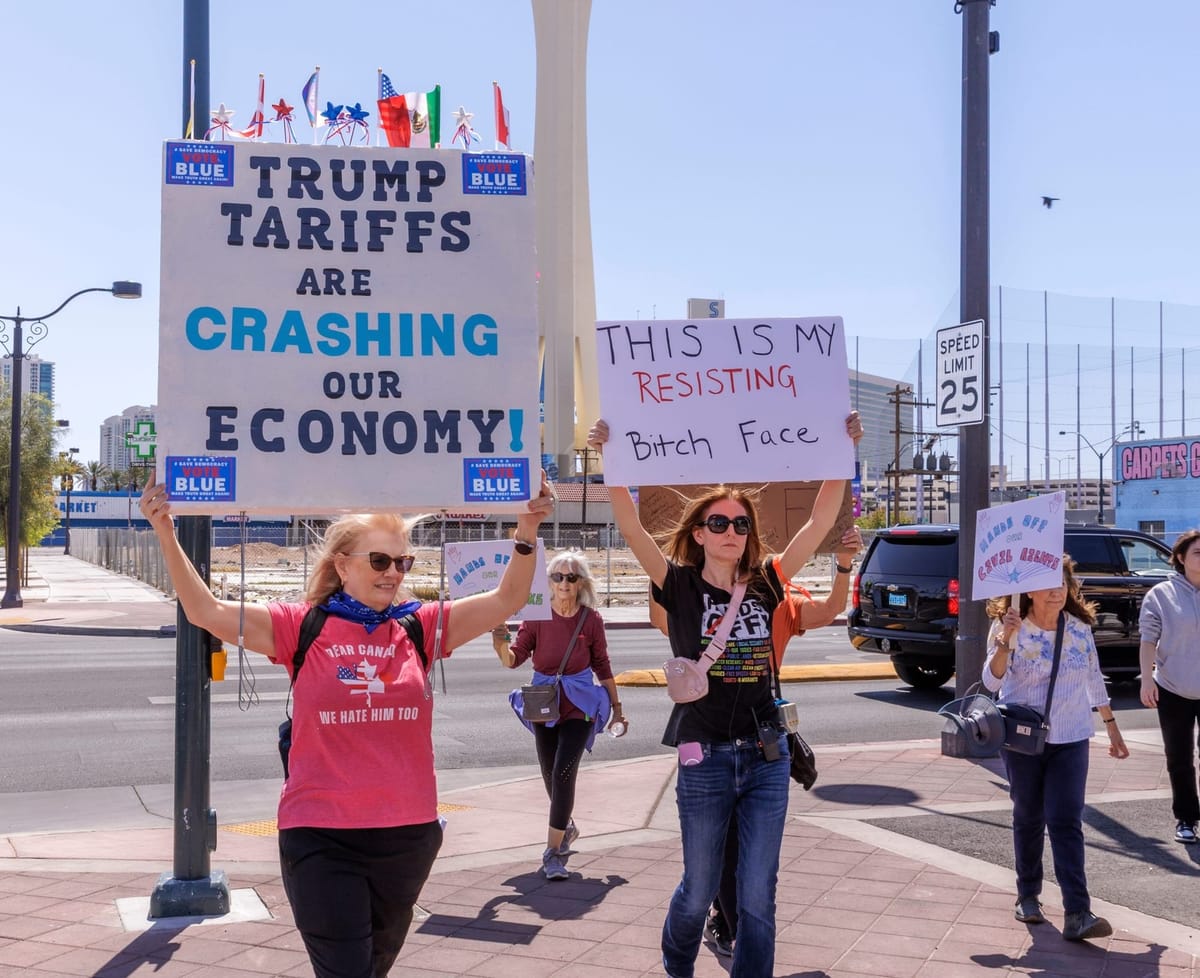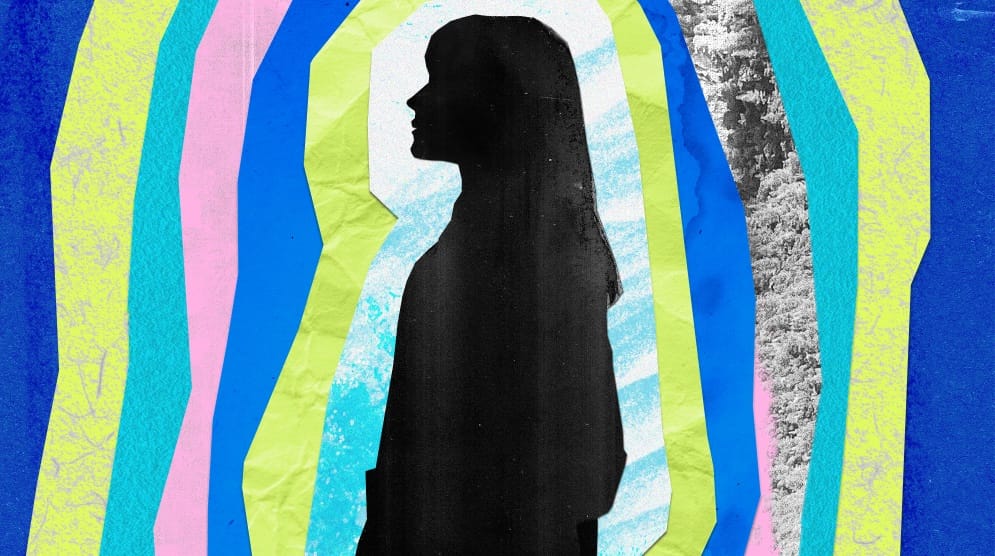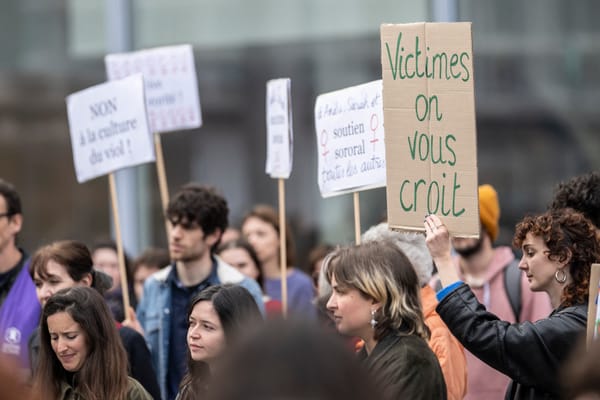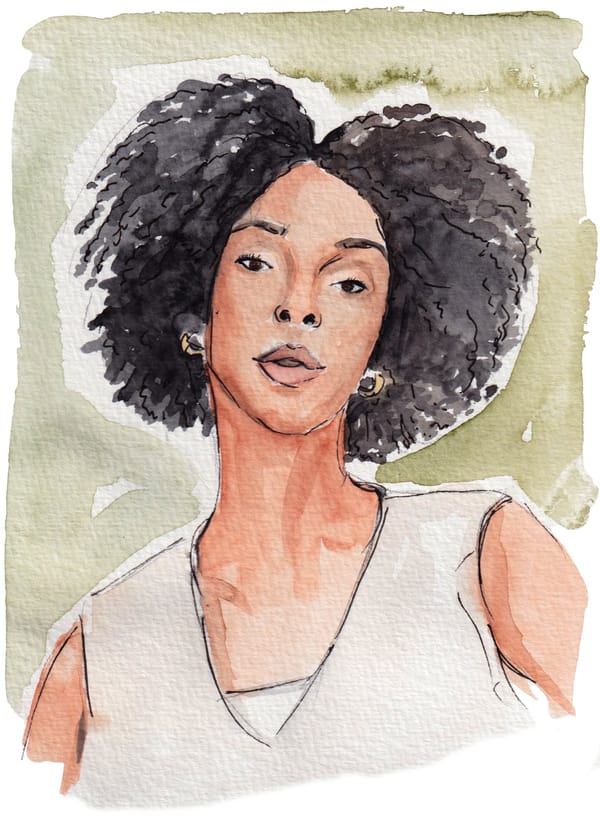What the Market Meltdown Could Mean for Women
Financial crises and economic recessions tend to affect women most—both in visible and invisible ways.

I started my career as a markets reporter working in major global newsrooms. (First Reuters and then The Wall Street Journal, if you must know.) As such, I’m acutely aware of how allergic editors are to hyperbole when it comes to writing about financial sell-offs. Even on the worst days for stocks, bonds, commodities and currencies, our wording had to be tempered and accurate, and we prided ourselves on this.
The verbs, nouns and adjectives being used right now are testament to the magnitude of the financial crash we’re currently enduring, courtesy of Donald Trump’s “Liberation Day” agenda.
Global markets are “tumbling” (Financial Times); they’re in “freefall” (Al Jazeera); it’s a “meltdown” (Reuters); it’s “carnage” (The Economist); U.S. stocks had a two-day “washout” (The Wall Street Journal). And the chance of a recession? On Monday, the investment bank Goldman Sachs raised its probability of a U.S. recession occurring in the next 12 months to 45%—a second raise in just a week from a previous prognosis of 20%. Its peer J.P. Morgan thinks there’s now a 60% likelihood of that happening, and other economists at financial institutions around the world are similarly pessimistic.
Economic recessions are, of course, troubling for many reasons. They can lead to immediate job layoffs and a rise in medium- to long-term unemployment. Smaller businesses with slimmer margins might be the first to feel the pain of declining revenues and profits, but companies of all sizes are hurt when economies shrink.
As incomes fall, consumption does too: People are less inclined to buy things—especially big ticket items, like houses and cars and household appliances. But there are other consequences of recessions and financial crises that are less obvious—less visible—and yes, they’re gendered.
Glossed Over and Underplayed
In 2018, the academics Robert Blanton and Shannon Blanton of the University of Birmingham in Alabama, and Dursun Peksen of the University of Memphis, published a paper demonstrating all the ways in which economic recessions tend to be worse for women than for men.
In their research, they note that more than 1,600 financial crises have occurred in countries around the world since 1976, including inflation crises, currency crashes, sovereign debt crises and banking crises.
Some of these have destabilized economies, instigated political instability, and posed “immediate and longer-term threats to personal well-being,” the trio writes. And problems have frequently persisted even when the crises have ebbed. Firms have, for example, been slow to resume hiring, and government revenues have tended to remain stagnant for a while.
But the paper also states that the full extent to which these crises have affected women has been poorly understood. Women’s problems and challenges, as ever, have been glossed over and underplayed. One might say, it’s a tale as old as time.
Disproportionate Burdens
So what burdens have women disproportionately carried during and after past financial crises? And what burdens might they carry this time around?
Let’s start with perhaps the most obvious: Women around the world tend to be overrepresented in lower-paying jobs that are also less secure, while men tend to dominate higher-paying, more stable roles, something economists describe as occupational segregation. While this underpins the pernicious and wide-spread gender pay gap, it also means that women’s jobs may be the first to be cut when employers need to trim costs quickly. When push comes to shove, women are the first to go.
And let’s not forget that job losses and reduced earnings during a recession don’t only exacerbate the gender pay gap, but also chip away at women's savings and investment potential—for retirement, for example–which means that the cost associated with weathering a financial downturn might be felt far into old age.
The Covid-19-related recession provides a powerful example of this. According to a report by the European Institute for Gender Equality, “during the first lockdown in 2020, 1.5 million women across the European Union lost jobs in highly feminized and crisis-hit sectors such as the retail trade, hospitality, residential care, domestic work and clothes manufacturing.” It was young women, specifically, who fared worst in the first Covid-19 wave, the institute found.
Yet, when the recovery began, men recovered their jobs at a faster clip than women, which corresponds to similar findings from elsewhere around the world.
A perhaps less acknowledged gendered impact, is what can happen to health and education as the result of a financial crisis. In their paper, Blanton, Blanton and Peksen find that when economies falter, government spending on health and education tends to dry up too, with less money particularly allocated to women’s education and healthcare.
Women are more likely to be poor and they’re more likely to have healthcare needs, because of pregnancy, for example. Citing another paper from 2011, they write that “as resources for health care become increasingly scarce, needs of male family members are typically ‘prioritized in the process of rationing household resources to the detriment of girls and women.’”
In terms of education, the picture is similar. Families experiencing financial hardship, might deem the future benefits to educating sons to be higher than those to educating daughters, the authors write. That’s why girls are more likely to be pulled from school than boys during crises. Research from the United Nations corroborates this.
The health and education arguments might be particularly relevant in poorer countries, countries where sexism is culturally and socially—even politically and legally—entrenched, and in which women’s labor force participation still dramatically lags men’s, but they’re worth considering in every country around the world.
Plenty of research shows that public sector cuts disproportionately impact women. In the U.K., one feminist think tank in 2022 characterized government austerity as “gender-based violence,” while in the U.S., the recent cuts instigated by the euphemistically-titled Department of Government Efficiency (DOGE) have already disproportionately passed the buck on to women.
“This is being presented as a way to trim the federal budget, but it's really just shifting the burden to America's mothers, sisters and daughters, who will have to help their families cover the gap,” the sociologist Jessica Calarco recently wrote in an op-ed.
‘Particularly Concerning Environment’
Of course, there’s no way of knowing exactly how the next few months will play out in terms of the global economy. It’s impossible to say whether this will land us in a full-blown economic recession and, if so, how long it will last, and how far it might reach. Every crisis has its own idiosyncrasies.
What we do know, Melanie Long—an Associate Professor in the Department of Economics at the College of Wooster in Ohio—told me, is that if we do get a recession it “will be coming alongside a shift towards government downsizing and reductions in spending at the federal and state levels.” In other words, we’ll be dealing with a double whammy of cuts because the economy is ailing and—at least in the U.S.—because the Trump administration is paring back government functions and roles.
“Women have greater representation among public sector workers,” she said (hello, occupational segregation). “So the combination of recession- and policy-induced declining tax revenues together with the public sector job cuts that are already in progress could be particularly bad for women.”
And finally, she also emphasized that savings could certainly take a blow, and yes, that means women’s wealth and women’s long-term financial wellbeing. “Declining stock values obviously impact household wealth, especially retirement accounts. Women have less retirement wealth to begin with—and especially those who are caregivers—which might suggest lower absolute losses. Yet women also live longer and therefore need their retirement wealth to go farther,” she concluded. “So women nearing retirement face a particularly concerning environment at the moment.”











